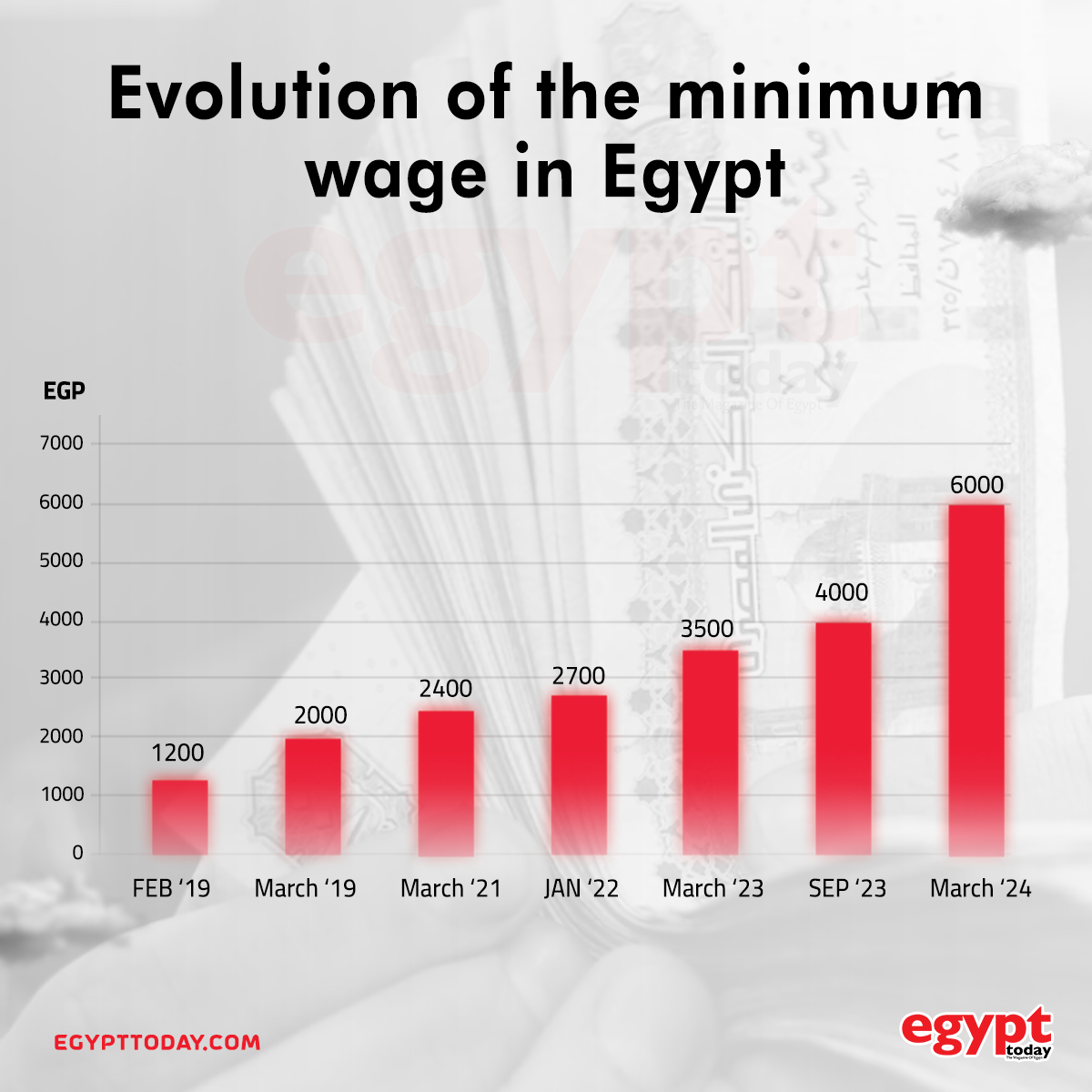CAIRO - 30 May 2024: Egypt adopted a new approach to achieve social justice by implementing comprehensive social policies to support the needy and enhance human security.
This was combined with economic reforms and exchange rate liberalization to ensure stable inflation.
Advancements in Egypt’s FY 2023/2024 Plan: strengthened social support, higher minimum wage, and tax adjustments
In the FY 2023/2024 plan, Egypt boosted its social support and protection programs by allocating LE 529.7 billion. This allocation marks a 48.8 percent increase compared to the previous fiscal year.
Moreover, Egypt increased the minimum wage from LE 1,200 in March 2019 to LE 4,000 in September 2023, resulting in a surge of over 230 percent during that period.
Consequently, this wage hike is projected to impose a cost of approximately LE 2.5 billion per month on the state’s general budget, reaching a total of LE 25 billion by the conclusion of FY2022/2023.
The Egyptian government doubled the exceptional allowance for social pension holders to reach LE 600 up from LE 300, benefiting about 11 million citizens.
This means that the state’s general budget will cost about LE 3.3 billion monthly, and it will cost about LE 33 million until the end of the 2023/2024 budget.
The minimum exemption from income tax was also raised from LE 36 thousand to LE 45 thousand, an increase of about 25 percent, or about LE 9,000, which costs the state’s general budget about LE 3.8 billion.
Egypt's measures to support food commodities
Egypt has taken steps to strengthen its food commodities sector. In the FY2023/2024 budget, the allocation for supporting food commodities increased by 36 percent, to reach LE 451.7 billion, compared to LE 331.2 billion in FY 2022/2023.
The country has focused on raising the adequacy levels of strategic goods stocks and enhancing the availability of consumer goods in local markets. Egypt's wheat reserves amounted to about 4.8 months, with wheat imports increasing by 30 percent to 8.3 million tons.
Moreover, Egypt maintained a six-month supply of sugar, a 7.5-month supply of oil, and sufficient contracts for fresh meat, poultry, and rice, ranging from 3 to 6 months.
Recently, Minister of Supply and Internal Trade, Ali Al-Moselhi, announced that Egypt has enough to cover the local market’s wheat needs for 5.3 months, until November 2, 2024.
In light of this, the gap of 1 million tons of sugar will be filled, and Egypt will have a stock of that commodity sufficient until February 2025, until the arrival of the new crop of local production.
The minister of supply confirmed that for cooking’s oil, the strategic balance covers 6.2 months until November 28.
As for frozen poultry, it is sufficient for 11.8 months until May 18, 2025.
Egypt initiates measures for release of goods at ports
The Egyptian government worked on releasing of goods at ports, with coordination between the Central Bank of Egypt ( CBE) and relevant ministries. This includes essential items like food, medicine, and production necessities.
Egypt released goods worth more than $14.5 billion since January until the end of March 2024.
The Egyptian government has also launched a price reduction initiative, targeting reducing prices of seven key commodities from 15 to 25 percent.
Egypt’s efforts to empower middle class
Recently, Egyptian President Abdel Fattah El Sisi issued a package of decisions for social protection for the middle class, which included increasing the minimum wage by 50 percent to reach LE 6 thousand.
Additionally, the wages of workers in the state and economic bodies was raised to a minimum ranging from LE 1,000 to 1,200 per month, depending on job grade, and giving more attention to the health and education sectors.
An additional LE 15 billion were allocated to enhance wages of doctors, nurses, teachers, and faculty members at universities.
Egypt also allocated LE 6 billion to appoint 120,000 members of the medical profession, teachers, and workers in other administrative agencies.
The Egyptian government also increased the values of pensions within the urgent package for social protection, which includes approving a 15 percent increase in pensions for 13 million citizens, at a total cost of LE 74 billion, so that the increase within a year becomes 55 percent of the value of the pension.
The tax exemption limit has also been raised for all state employees in the public and private sector by 33 percent from LE 45 thousand to LE 60 thousand, with a total annual cost of LE 5 billion.
The state aims to expand social protection programs, increasing spending on social protection to 22 percent of total public spending during period from 2024 to 2030, compared to 18 percent during the period from 2014 to 2023.
Moreover, the Takaful and Karama program for people with special needs will receive increased allocations of LE 240 billion, benefiting around 27 million citizens.
Additionally, the program’s expenditure will rise to LE 70 billion, benefiting approximately 3 million citizens during the period from 2024 to 2030 compared to about 1.2 million citizens previously.

Comments
Leave a Comment